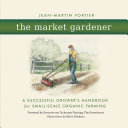Advances in Conservation Agriculture Volume 3: Adoption and Spread
About this ebook
"...this new volume is timely. More than 120 authors from more than 30 countries contribute global evidence and knowledge drawn together into a short survey and sixteen regional chapters, each including useful context and a section on where to look for further information...Our review of the first two volumes concluded: ‘This book can change the future.’ Chapters in this volume give us a glimpse of that future."(David Dent, International Journal of Environmental Studies)
"The whole series is a magnificent achievement and will be the principal reference for years to come." (David Dent)
With growing scientific concern around the limitations of tillage-based agriculture, coupled with the sector’s need to contribute to being more sustainable, the development and adoption of alternative farming techniques has never been more important. Conservation Agriculture (CA) is emerging as a key alternative. The foundations of CA are built upon the use of no-till techniques and the use of rotations and cover crops to optimise different aspects of soil and crop health and resilience.
Advances in Conservation Agriculture Volume 3: Adoption and Spread provides an authoritative review from an array of international experts on the adoption of CA principles in different regions around the world. The final volume in this collection reviews the effectiveness of CA in differing contexts (e.g. in drier conditions where water conservation is important or in areas with poor soil) and refers to the wealth of research and experiential evidence currently available.
About the author
Professor Amir Kassam is Visiting Professor at the University of Reading (UK) and Moderator of the FAO-hosted Global Platform for Conservation Agriculture Community of Practice (Global CA-CoP). He is a Fellow of the Royal Society of Biology (UK) and has received an OBE from the British Government for services to tropical agriculture and to rural development. Prof. Kassam is Chair of the International Conservation Agriculture Advisory Panel for Africa (ICAAP-Africa), Member of the European Conservation Agriculture Federation (ECAF) and Vice-Chair of the Conservation Agriculture Association for the UK (CA-UK). He is former Chair of the Aga Khan Foundation (UK), the FOCUS Humanitarian Assistance Europe Foundation and the Tropical Agriculture Association (TAA). He has held senior positions at international organisations such as the FAO and CGIAR and has worked with many national and international programmes on sustainable agricultural development. He has published widely on Conservation Agriculture.
Dr Sjoerd W. Duiker is Professor of Soil Management and Applied Soil Physics at Penn State University, USA. He has made significant contributions to both research and extension in developing more sustainable soil management practices in such areas as no-till systems, the use of cover crops, mulches and more diverse crop rotations. He is a member of the Governing Board of the Northeast Cover Crops Council which brings together universities, farmers, government agencies and others to optimise cover crop use in the north-eastern states of the USA. Professor Duiker is also a co-editor of the forthcoming Burleigh Dodds Science Publishing collection Weed management in Conservation Agriculture systems.
Dr Marie Bartz is a Researcher in the Centre of Functional Ecology at the University of Coimbra, Portugal. She is also a Visiting Professor at the Federal Technological University of Paraná, Brazil. She has published widely on earthworms and other aspects of soil biodiversity.
Dr Gottlieb Basch is a Full Professor in the Department of Plant Science at the University of Évora, Portugal. He is President of the European Conservation Agriculture Federation and has contributed to a number of EIP AGRI Focus Groups, EU Horizon and other research projects on more sustainable methods of crop cultivation.
Dr Lamourdia Thiombiano is a Researcher with more than 30 years experience in land and water management and conservation, land rehabilitation against desertification, and conservation agriculture across African continent. Dr Thiombiano has previously worked at the Food and Agriculture Organisation (FAO) for 15 years as the Soil Resources Officer for Africa and later as the Permanent Secretary of the Ministry of Agriculture in Burkina Faso. He has published over 100 technical and policy papers related to soil health and agriculture.
Dr Saidi Mkomwa is Executive Secretary and Chief Executive Officer of the African Conservation Tillage Network with over 30 years‘ experience of developing and promoting Conservation Agriculture techniques in Africa. Amongst other responsibilities he is Chair of the Conservation Agriculture Regional Working Group for Southern Africa. He is based in Kenya.









